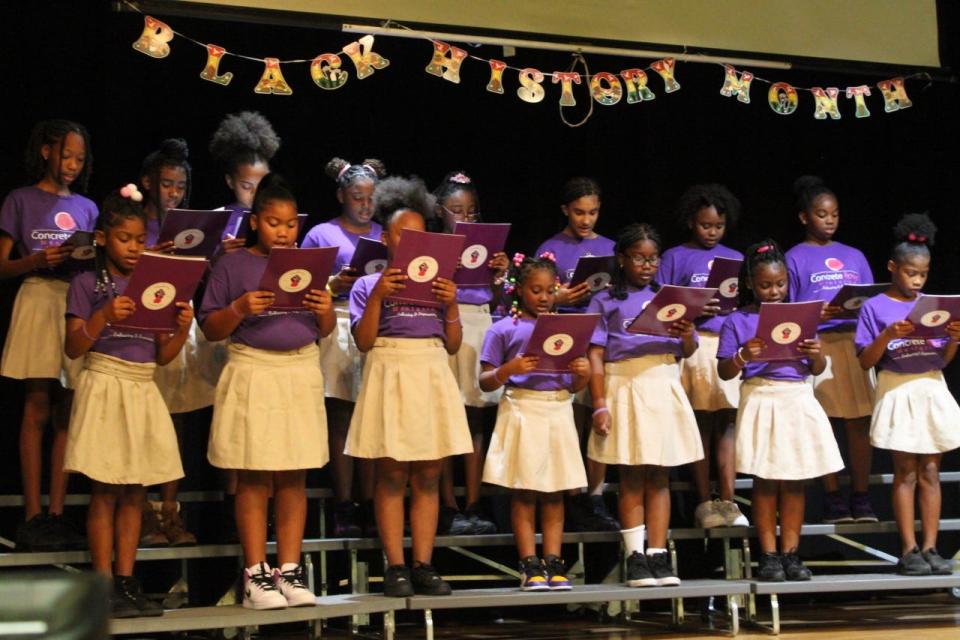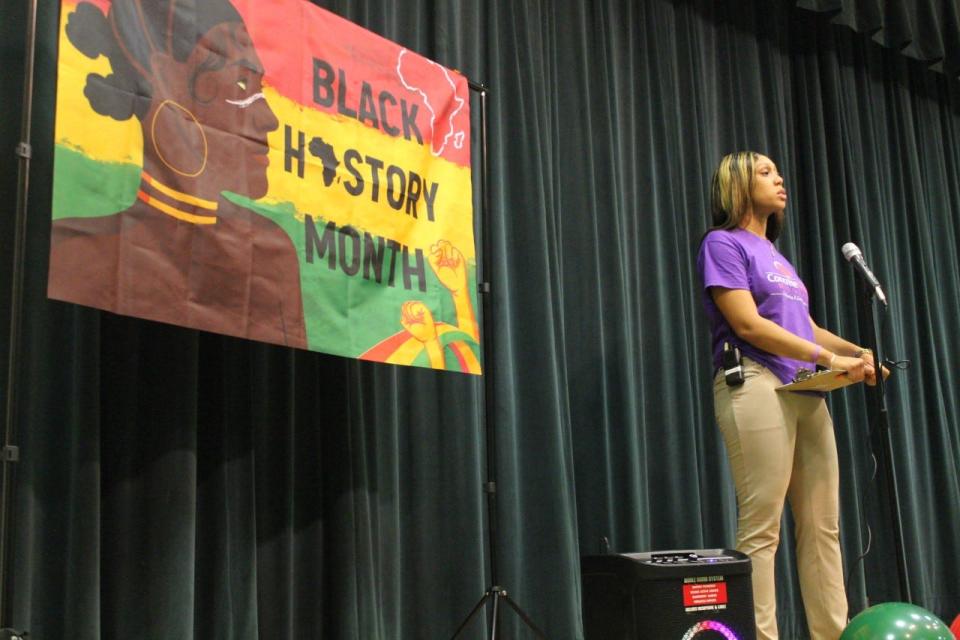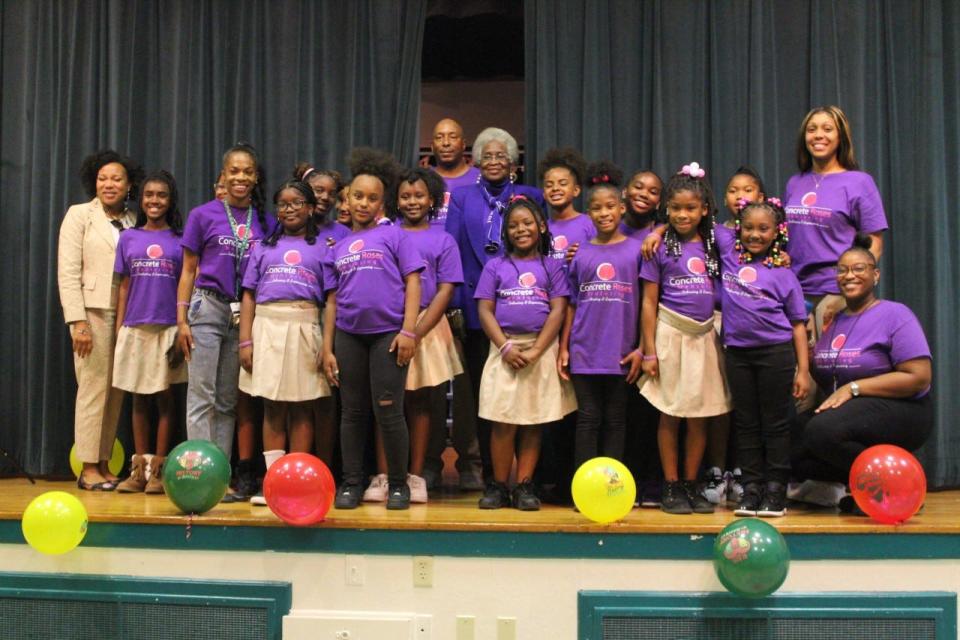Black history celebrated at Stephen Foster Elementary School in Gainesville
Oral history, re-enactments and performances highlighted a Black History Month program led by members of Concrete Roses.
The student-led program was held at Stephen Foster Elementary School on Thursday and hosted by Concrete Roses, a mentoring program founded in 2019 at Idylwild Elementary School under Principal Wanza Wakeley to help young girls and expose them to opportunities to become successful.
Over 150 students in the third through fourth grades attended the program to learn more about the history of Rosewood, influential Black women and historically Black colleges and universities.
Oral history:Book about African American Studies program at UF to be launched
Black history:Celebrating black history
King holiday:Gainesville community once again celebrates the King National Holiday in fine fashion
“I want them to have as much knowledge of their history as possible,” said Ashley McClellan-Robinson, founder of Concrete Roses, a mentoring program established in 2019 at Idylwild Elementary School to empower young girls and teach them how to become successful.
“I wanted the girls to learn about people that look like them,” McClellan-Robinson said. “What I want them to get from this program is the importance of sisterhood and working together and lifting up the names of historical figures.”
The program is set to host a HBCU tour for the girls to Atlanta in July to visit Morris Brown College, Spelman College and Clark Atlanta University, McClellan-Robinson said.
“I want to give them access to opportunities they don’t normally get,” McClellan-Robinson said.
Sixteen girls from Concrete Roses participated in the Black History Month program that began with the singing of the Negro National Anthem that was followed by seven girls reading short biographies of influential Black women.
The women were Ida B. Wells, an investigative journalist; Mary McLeod Bethune, who founded what is now Bethune-Cookman University in Daytona Beach; Mae Jemison, an engineer and former NASA astronaut; Madam C.J. Walker, the first Black woman millionaire in the U.S.; Mary Eliza Mahoney, the first Black to study and work as a professionally trained nurse in the U.S.; Dr. Patricia Bath, an ophthalmologist who created an improved device for laser cataract surgery and Bessie Coleman, the first Black woman to obtain a pilot's license.
Lizzie Robinson-Jenkins, co-founder of The Real Rosewood Foundation Inc., talked to the students about the 1923 Rosewood Massacre. Rosewood is on State Road 24 about 40 miles southwest of Archer.
RosewoodFlorida.com, On the morning of Jan. 1, 1923, Fannie Coleman Taylor, a married white woman in nearby Sumner, claimed a Black man assaulted her, though some believe her lover was the culprit, according to RosewoodFlorida.com,
A mob that included Ku Klux Klan members who were in Gainesville for a rally assembled, and in the following days, the mob beat Black residents and burned the town down, according to the foundation’s website.
“My mission is to keep the history alive for the next generation,” Robinson-Jenkins said. "Black history is American history.”
Robinson-Jenkins sang a song about Rosewood that was penned by her mother, Theresa Brown Robinson.

Robinson-Jenkins also answered questions from students about the massacre.

"I’m not trying to shy away from answering their questions,” Robinson-Jenkins told teachers and parents. “I want to tell them the truth. It’s not about politics, it’s about keeping history alive.”
Eight dancers from Concrete Roses performed a step routine they had practiced for two months.
Eden Nolan, a fifth grader at Stephen Foster and student president of Concrete Roses, participated in the step show and read the history of Madam C.J. Walker during the Black History Month program.

“To me, Black History Month is a month to celebrate African-Americans and share the importance of our history and how it made the world a better place,” Eden said.
This article originally appeared on The Gainesville Sun: Concrete Roses mentoring group hosts Black History Month event

